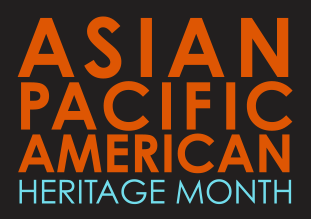Let’s talk about stereotypes, “good” ones. I don’t mean ones that accurately generalize a group of people, if that is even possible, but ones that universalize populations with desirable features or skills. For example, all Asians are good at math. In fact, Asians are just all smart.
Most of us have heard something similar about Asian intelligence directed at us in school. Asians being smart is a “good” stereotype. Rather then a stereotype towards being criminalized or greedy, we are characterized as talented. It’s a stereotype some do not see the harm in and maybe even desire. However, in actuality any stereotype, good or bad, is harmful.
The math stereotype disproportionately targets a small portion of Asian Americans, East Asian Americans and Indian Americans. It takes an entire continent and bottles it down to what society pictures as “Asian,” despite the various skin tones, languages, and cultures that encompasses Asian American identity. This is a problem in itself. However, to demonstrate the adverse effects of a “good” stereotype, we will bypass this gross generalization and focus on the Asian Americans it does affect.
Asian Americans exist in multiple fields. We are not all STEM students looking forward to our homework. Some of us specialize in art related fields (like the poetry that exists on this website) while others go into politics . This shouldn’t be surprising. A stereotype is an over generalization based on ignorance and a rice grain of truth. So what becomes of those who do not fit the stereotype?
Often they feel pressure to fit in and be the “smart” Asian who aces all classes and later majors in STEM. There is even more pressure for those with immigrant parents who wish to see their child succeed in a respected field. Those who grew up around the stereotype question their real interests and feel increasing inadequacy should they perform poorly on tests. There is a sense of inner shame as peers question, “Aren’t Asians good at math?”
Then there are those who do excel at math and science. Who earn that A and are brushed aside because, “You’re Asian of course you did well.” Their accomplishments are diminished because of their Asian American appearance and identity. The A earned on that test was not accepted with the same value of a non-Asian American student’s. Furthermore, there exists the anxiety of fulfilling a stereotype you may not want to be a part of. Why? Because then you stand out as Asian, as a minority. There is a strong desire to fit in with others as we wrestle with our own identities and are faced with the ridicule of peers.
Despite the seemingly “good” stereotype, the generalization still causes harm. It causes social anxiety, perceived judgement, and a question of identity. It simplifies an inclination towards academics down to race and ignores the effects of culture and society. The blame gets displaced and minorities are once again pitted towards one another as we are looked to as the model minority, the ones quick to assimilate and succeed. We are a diverse group made up of those who do well and those who do not. Asian Americans should not be lumped together and discounted for their successes by attributing it to race.
We are more than a “good” stereotype.
TL;DR: Mofo, I’m good at math cause I worked hard and liked it, not cause of the color of my skin or the shape of my eyes.





